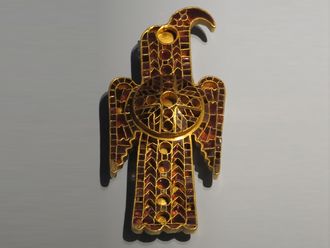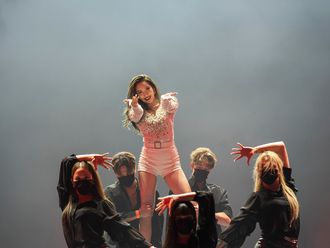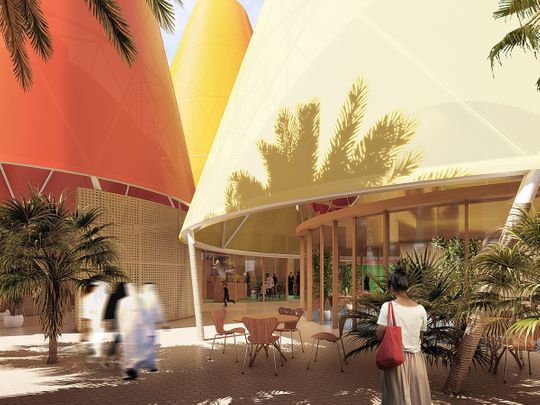
Dubai: Hints and traces of the Islamic architecture still live on in the Spanish cities of Granada and Cordoba, a lasting legacy of the 800-year Moorish rule in Andalusia. Inspired by historical ties with the Arab world and driven by global crises ravaging the planet, Spain’s participation in Expo 2020 Dubai hopes to communicate a message of unity and ingenuity.
“Intelligence is the key [to] success for the human race,” says Carmen Bueno, the Deputy Commissioner General and Director of the Spain Pavilion, in an interview with Gulf News. “Our creativity and our capacity to innovate are essential tools to preserve life and biological diversity and also to build a sustainable future.”

Intelligence is the key [to] success for the human race. Our creativity and our capacity to innovate are essential tools to preserve life and biological diversity and also to build a sustainable future. Expo 2020 Dubai is a great opportunity to show [our innovations in the field of sustainability].
Participating under the theme of ‘Intelligence for life’, the pavilion will showcase how Spain approaches sustainability, which, according to Bueno, poses the greatest challenge for the world today. “Expo 2020 Dubai is a great opportunity to show [our innovations in the field of sustainability].”
Cool without air conditioning
Creative minds from the Madrid-based Temperaturas Extremas architecture studio incorporate interconnected open-air squares into the pavilion design to offer a sanctuary disparate from the hustle and bustle of the world fair.
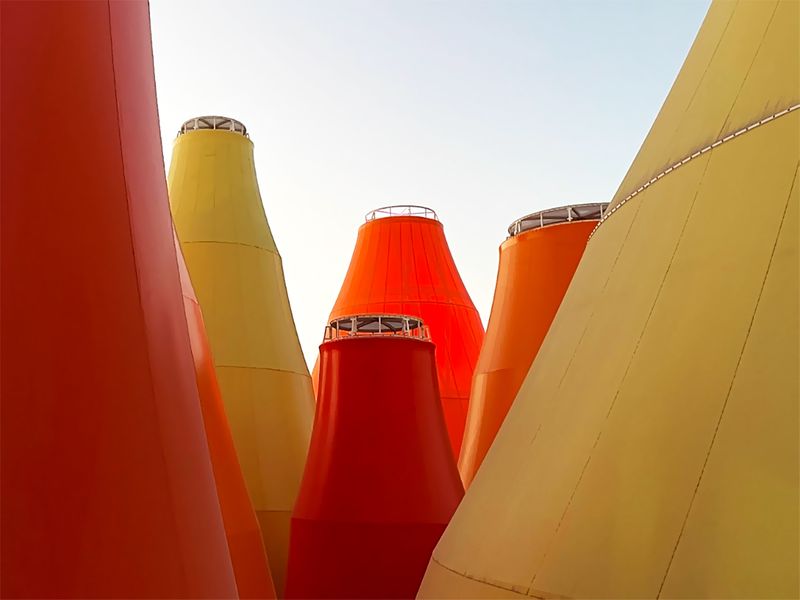
Inspired by African architecture, 14 large cones shelter the circular town squares and are coloured in the warm hues of red and yellow of the Spanish flag, serving a bigger purpose than just aesthetics: “They are natural cooling towers,” says Bueno. “They expel hot air and lower the temperature inside the building.”
Also known as the Venturi effect, the eco-friendly cooling technique generates energy savings for the pavilion and forgoes air-conditioning units.
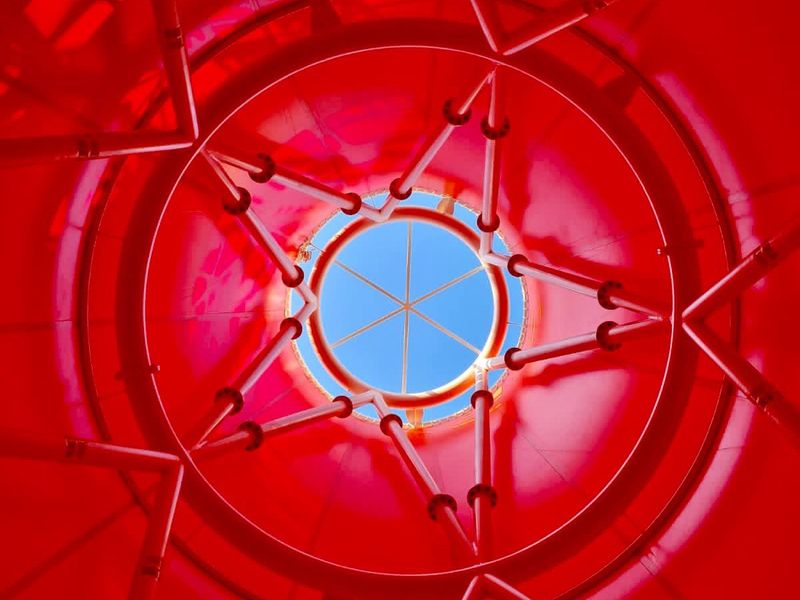
“Likewise, the building has been equipped with photovoltaic ultralight and flexible solar panels designed by a Spanish company,” adds Bueno. TSO, The South Oracle – the company in question – has integrated solar panels that weigh 3kg per square metre into the architecture, rendering them nearly invisible to the eye.
Glimmers of Al Andalus
Designed by Barcelona-based studios Onionlab and External Reference Architecture, the exhibition tour begins on the ground level, within the circular plazas of varying diameters. ‘Dostellos’, which means ‘sparkles’ or ‘glimmers’ in Spanish, is the first exhibition of the tour, delivering a culturally immersive experience to visitors, from trying Spanish cuisine at the restaurant or the tapas bar to exploring the Arab heritage of Al Andalus.
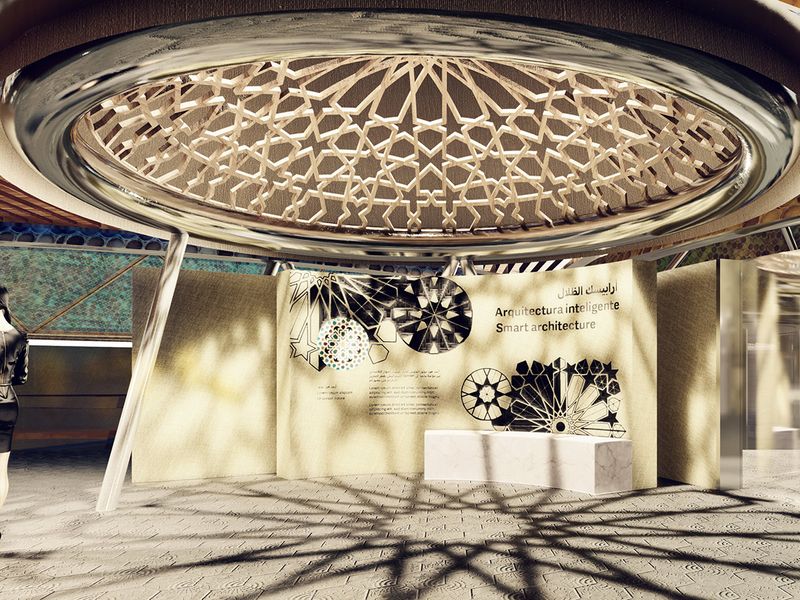
“[In this exhibition circuit], we want to present to the world Spain’s contributions to global society: cultural icons, our language, as well as the chess, whose history and evolution share Arabic and Spanish roots.”
“On December 10, this great tournament began with 293 teams from 54 different countries, bringing together more than 2,000 boys and girls from all over the world,” says Bueno. The final 12 teams will proceed to a face-to-face showdown onsite during the exposition run.
Forest of the future
To arrive at the second leg of the exhibition, visitors will have to descend to the basement through the atrium, a conical space dedicated to an art installation on the pavilion theme. Here, in the underground, is where the Spanish pavilion will showcase its own ‘Forest of the Future’.
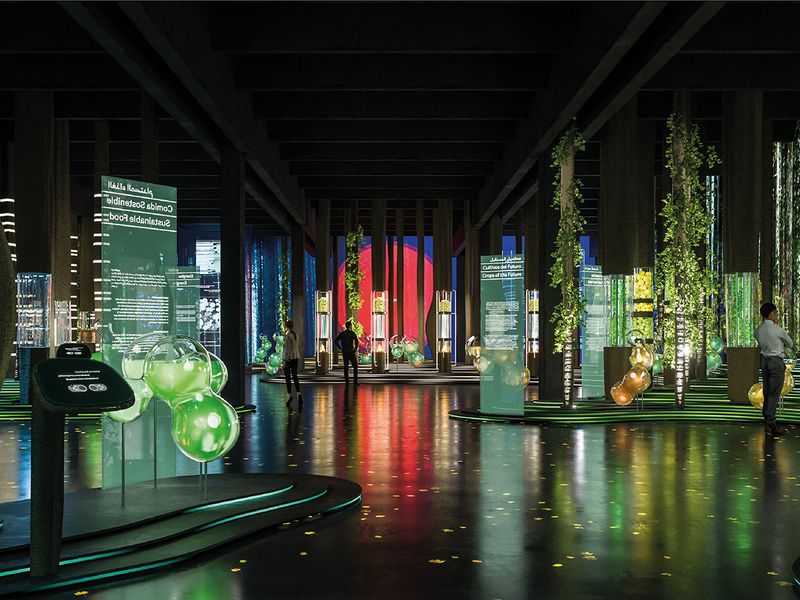
This technologically advanced forest is an artificial ecosystem built from organic and recycled materials, where future-ready Spanish companies will present their sustainable solutions – in line with the United Nation’s 2030 Sustainable Development Goals.
“This space will invite us to reflect on the need to assume sustainable habits to guarantee the needs of future generations,” adds Bueno. Just as a forest behaves in nature, the artificial micro-habitat has interactive flooring that reacts to the movement of the visitors. A summation of these interactions will then reflect on the ‘Tree of balance’ – the tree turning greener or losing colour after an assessment of visitors’ consumption habits.

The Spanish pavilion will have a very special “forest” that is a gallery of Spanish innovation. This artificial forest, built with organic and recycled materials, will be a metaphorical space composed [of] several examples about our [country's] contribution to the protection and sustainable use of natural resources.
Europe’s first hyperloop demo
A model of the Spanish-developed Z01 Hyperloop will be showcased at the pavilion. The hyperloop is a proposed futuristic mode of transport that can travel up to 1000km in an hour on ground, making it swifter than airplanes.
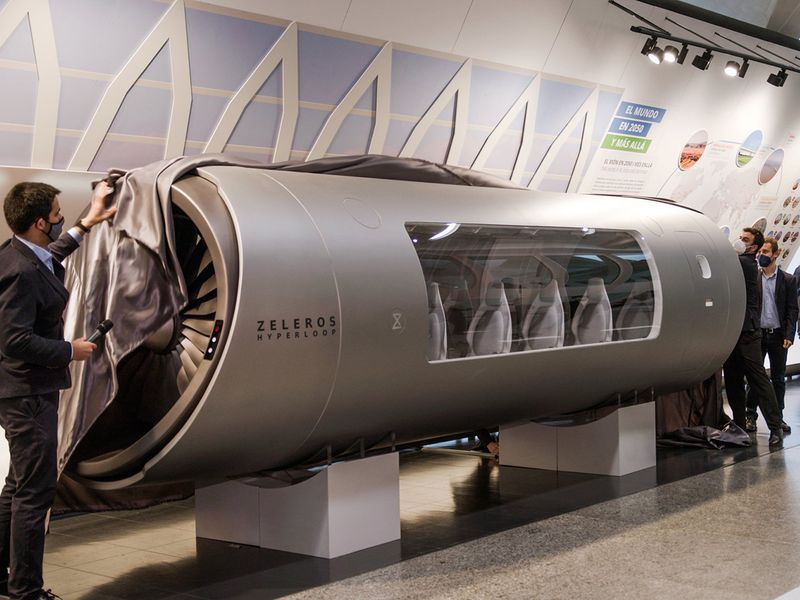
Valencia-based Zeleros joins countries such as the US, Canada, India and Netherlands in developing its own electric levitating pod system that runs on clean energy with zero emissions.
“In sustainability, we want to show current projects in the field of energy and environmental innovation: renewable energy, sustainable food, microalgae against climate change, or new transport systems (hyperloop).”
Visit the pavilion online
Though the COVID-19 pandemic did not hamper preparations, Beuno says Spain is preparing for a virtual visit of the pavilion during the period of the event.
Offline, however, the pavilion organisers are doing all they can to adhere to safety measures: “The Spanish Pavilion will comply with all the security, capacity and social distance measures established by the organisation of Expo 2020 Dubai.”

We believe that Expo 2020 Dubai is an unmissable event because it will be the first major multinational event [post-pandemic]. We all really need to meet again.
Bueno stresses on coordination and contribution between countries in face of the global predicament and hopes that Spain’s participation aptly represents how active the nation has been in sharing sustainability solutions.
“We believe that Expo 2020 Dubai is an unmissable event because it will be the first major multinational event [post-pandemic]. We all really need to meet again.”
- The writer is an intern with Gulf News.


